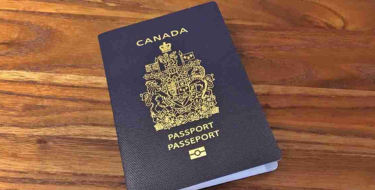What are the benefits of a Canadian passport?
According to Henley & Partners, a global immigration consulting business, the Canadian passport is the seventh most recognized in the world, ranking among passports from the United States, Poland, Greece, and Czechia.
A Canadian passport, according to the research, allows visa-free travel to 183 countries, making it one of the best in the world. This year, the Singaporean passport was the most widely recognized (providing admission to 193 countries), with Japan close behind (giving access to 192 countries). Afghanistan’s passport came in last this year, providing visa-free travel to 27 countries.
Travelling with a Canadian passport
Having a Canadian passport has an impact on your travel plans. It allows for unlimited exit or admission into Canada without the requirement for permits, visas, or other travel restrictions. However, only Canadian citizens are eligible for passports, not permanent residents or those with temporary status.
As previously stated, Canadian passport holders have visa-free access to over 183 countries worldwide, including:
- The United States;
- The United Kingdom;
- The Schengen Area;
- Australia and New Zealand;
- South Korea;
- Singapore;
- Japan;
- Brazil; and
- The United Arab Emirates.
If you apply for a Canadian passport, you do not have to give up your current passport. Canada allows dual citizenship and thus several passports (assuming one’s native country also allows dual citizenship). As a result, you can keep as many passports as you qualify for.
You must first obtain citizenship.
Obtaining citizenship is required before applying for a Canadian passport. There are multiple steps to this.
You must first be a permanent resident of Canada and follow the physical presence laws of the country. For example, you must show that you have resided in Canada for at least three of the last five years, which equates to 1,095 days.
You must also file your taxes, if applicable. Passing a Canadian citizenship test and demonstrating your language skills are also required to highlight your comprehension and communication ability.
Even if you obtained your permanent resident status in another way, these prerequisites must be met. If you choose the naturalisation path, it usually takes at least three years to obtain Canadian citizenship.
You may be able to inherit citizenship status from your parent if you are the direct offspring of a Canadian citizen (who was a citizen at the time of your birth).
How to Apply for a Canadian Passport
You can apply for a passport after you have finished your citizenship ceremony and obtained your citizenship certificate. Every Canadian citizen is eligible to apply for this document, and it is rare to be declared ineligible. If you are found ineligible, your citizenship may be withdrawn owing to misrepresentation on your application or if there are security concerns, violations of human or international rights, or connections to organized crime related with your application.
The application process for a Canadian passport also necessitates the submission of particular documentation. Your citizenship certificate is one of the most important documents, and you must provide an original copy with your application. Even Canadians born in Canada must present a birth certificate as proof of citizenship.
Your application form will require numerous papers, including:
- proof of Canadian citizenship (citizenship certificate or Canadian birth certificate only);
- any valid Canadian passport or other form of travel document issued in your name (such as a refugee travel document or certificate of identity);
- two references in support of your passport application;
- a document that confirms your identity; and
- two identical passport-size photographs.
You will also need a guarantor when applying for your first passport. A guarantor must meet specific standards, which vary depending on the type of passport and the area from where your application is submitted.
You can apply for a passport online and then complete the procedure at a Service Canada location, either with a pre-arranged appointment or as a walk-in.
Passport Processing Time
The demand for new passports and passport renewals among Canadians is now high, owing to the relaxation of travel restrictions caused by the pandemic around the world.
The Canadian government has recently launched a tool to track processing times. As of present, it appears that the time it takes to complete a passport application from within Canada can range from normal service (10-20 business days) to urgent service, which can take anywhere from 2-9 days, or as short as by the end of the next day.
As a result, if you want to travel outside of Canada in the near future, you should start the application process as soon as possible.
Other Advantages
Aside from unrestricted travel, a Canadian passport has several other benefits. With the passport, you will be recognized as a Canadian citizen, with all of the same rights and freedoms as any other citizen, including the ability to vote in elections, seek for political office, and apply for employment that may require higher security clearances.
Another big benefit is the elimination of the inconvenience of status renewal every five years, which is generally required for permanent residents. This translates into lower application submission fees and avoiding the trouble of asking Immigration, Refugees, and Citizenship Canada (IRCC) for extensions.
Finally, new permanent residents receive free benefits in Canada for the first year of their new citizenship. Over 80% of permanent residents in Canada opt to become citizens, owing mostly to these advantages.
Obtaining Your Passport
Applying for a Canadian passport is a vital step in enjoying all of the advantages that come with being a Canadian. As with any other phase in the immigration procedure, it must be followed properly, as any deception (known or unknown) can result in substantial penalties and even loss of status. As a result, many people choose to retain immigration lawyers to handle their passport applications, not just to guarantee that best practices are followed, but also for the peace of mind that their services may bring.



